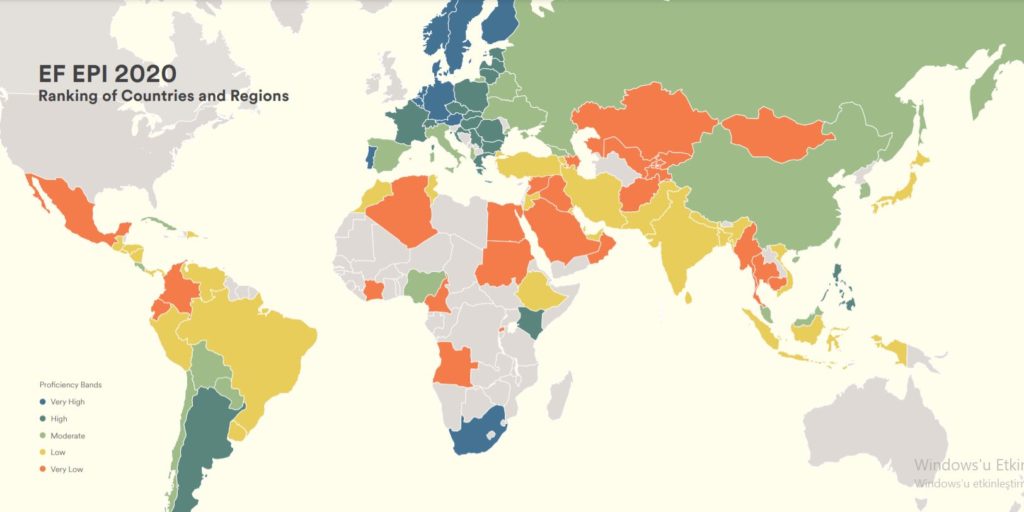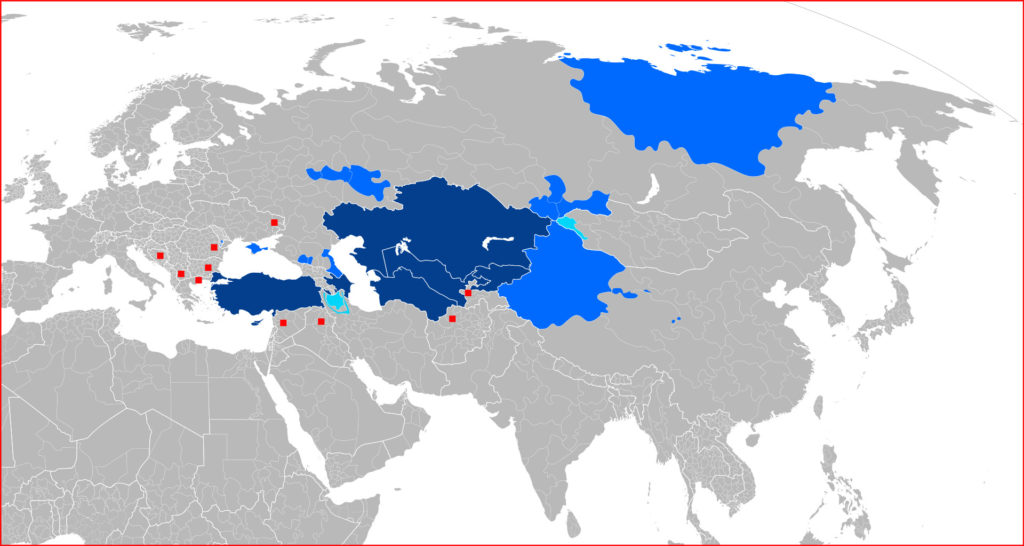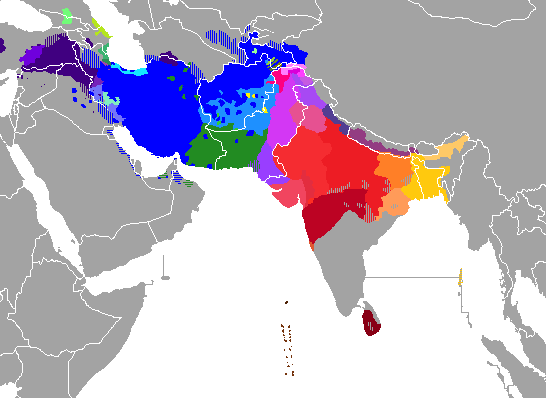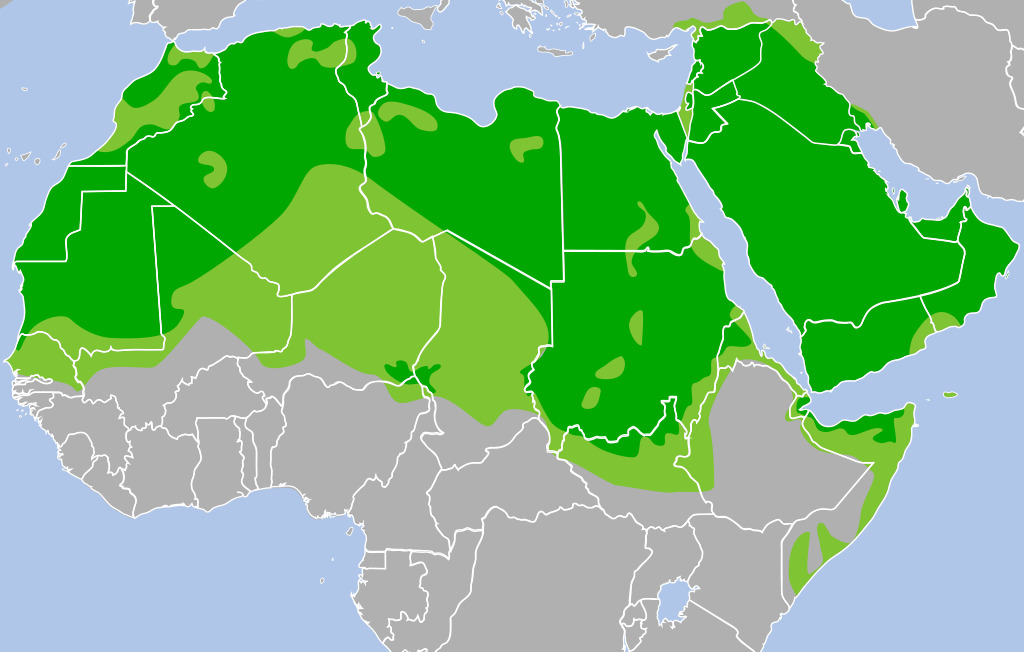In this article, I will answer all your questions about native languages and secondary languages spoken by Turkish people.
Besides my personal experience as a Turkish local, I also added reliable surveys to my answer so that the information that I provide is not limited to my experience.
Let’s start quickly.
1. Official Language and Native Speakers in Turkey
| Native Languages in Turkey | Percentage |
| Turkish | 91% |
| Both Turkish and Other | 2% |
| Kurdish | 6% |
| Arabic | 1,2% |
| Others | Less than 1% |
Source: EU’s Eurobarometer 2005 Survey
Turkish is the official language and the main spoken language in Turkey.
99% of Turkish people speak Turkish. %93 of Turkish people speak Turkish as their mother tongue, and 6% speak Turkish as a secondary language.
Minority languages spoken in Turkey are Kurdish (6%) and Arabic (1,2%).
Turkey’s primary languages (including secondary languages) are Turkish, Kurdish, Arabic, English, and German. The Russian language is becoming more popular lately.
About 30 ethnic languages are natively spoken by small communities of a few thousand people. These include Greek, Circassian, Armenian, Ladino (Medieval Spanish), and other Balkan languages.
Additionally, 18% of Turkish people speak English, and %4 of Turkish people speak German as their second language. The numbers I mentioned above are compiled from EU stats and BBC.
2. Secondary Languages Spoken in Turkey
| Number of Languages | Percentage |
| One Language | 33% |
| Two Languages | 5% |
| Three Languages | 1% |
| None | 67% |
Urbanization and globalization that Turkish society experienced in the last decades increased Turkish society’s willingness to learn new languages.
According to the Eurobarometer 2006 survey, 33% of Turkish people speak one secondary language, 5% speak two secondary languages, and 1% speak three secondary languages in addition to their native language.
| Language | Percentage |
| English | 18% |
| Turkish | 7% |
| German | 4% |
Source: EU’s Eurobarometer 2005 Survey.
18% of Turkish people speak English, and %4 of Turkish people speak German as their second language.
17 million Turkish speak English, and 4 million speak German as a secondary language.
I couldn’t confirm the number of speakers, but I can say that Russian, French, Spanish, and Italian are other popular secondary languages in Turkey. Source
Suggested Reading: What Languages are Spoken in Istanbul?

Turkish is also popular as a secondary language. 7% of Turkish people speak Turkish as a secondary language.
According to a study by the British Council, German, French, Spanish, and Russian are the other most popular secondary languages in Turkey.
Minority communities also speak Spanish and Italian in Turkey as their native languages.
For example, the Turkish Jewish community still speaks Ladino (A medieval form of Spanish) as their ancestral language.
Turkish Jews are descendants of Spanish Jews who fled the Spanish Inquisition around 1492.
As an example, in my family, besides Turkish, My sister and I speak English and Spanish, whereas my wife speaks Italian. Yet, the older generation has a lower rate of speaking foreign languages.
Check my articles on Languages Similar to Turkish and Turkic Languages to learn grammatically similar and mutually intelligible languages to Turkish.
3. How Widely Spoken is English in Turkey?
17 million (which is %18 of the) Turkish Population speak English as a secondary language, yet the overall English proficiency of Turkish speakers is lower than you may expect.
The English proficiency level of Turkish speakers is a bit lower than that of Brazil and Japan and a bit higher than that of Mexican speakers.

Source EFI
Younger generations have a higher rate of English speakers because most Turkish schools teach English as a secondary language.
Yet, the English language is different and hard to learn for Turkish people.
Turkish speakers rank as 69th country among 100 countries in EFI. Turkey has one of the lowest rankings in Europe and one of the highest rankings in Asia in terms of English proficiency.
English is more widely spoken in metropolitan cities and tourist centers. In Istanbul, Izmir, Eskisehir, Ankara, Mersin, and Bursa, you will easily communicate and find more English speakers.
In urban areas, you may have to resort to sign language to communicate because it is rare to find English speakers, but you will experience more extraordinary hospitality.
In major tourist destinations like Antalya, Bodrum, and Kusadasi, you will face no problems and enjoy your life without knowing the local language.
4. Trends in Native Languages Spoken in Turkey
The most extensive survey about the languages spoken in Turkey was conducted in the 1965 Census.
The importance of this survey comes from the number of people who answered. The 1965 Census was answered by every Turkish citizen at the time.
4.1. What Languages Do Turkish People Speak? (in 1965)
| Language (Mother Tongue) | Percentage |
| Turkish | 84,54% |
| Kurdish (Northern Dialect & Zaza) | 12,98% |
| Arabic | 1,38% |
| Other Turkic languages | 0.28% |
| Balkan languages | 0.23% |
| Laz | 0.12% |
| Other | 0.12% |
| Circassian languages | 0.11% |
| Armenian | 0.07% |
| Other Caucasian languages | 0.07% |
| Greek | 0.06% |
| West European languages | 0.03% |
| Coptic | 0.01% |
| Jewish languages | 0.01% |
Now, after telling you all the statistics. I can tell you my own experiences and how the languages spoken in Turkey have changed since 1965.
4.2 Native Languages Spoken in Turkey have changed since 1965. Turkish has become the undisputed language of Turkey in recent years.
In 1965, 84,54% of Turkish people stated Turkish as their mother tongue.
Today %93 of Turkish citizens speak Turkish as their native language, and only 1% of the Turkish population does not speak Turkish at any level.
4.3 The new generation of Kurdish people speaks Turkish as their mother tongue, and more Turkish Kurds speak Turkish as a secondary language.
Due to the urbanization of Turkish society, since the 1960s, there has been significant population movement from villages to cities.
This migration also led to integration between the Turkish and Kurdish people. The new generations of Kurdish people are far more likely to speak Turkish as their mother tongue.
4.4 Today, minority languages are even more rarely spoken.
In 1965, more than 30 native languages were spoken in Turkey. The number of dialects and some minority languages are being lost to time.
At the beginning of the 1900s, there was a mass emigration of Turkish people from the Balkans, Crimea, and Caucasus areas, where the Ottoman (Turkish) Empire lost control.
In those days, religion was a determining factor for ethnicity rather than the language that you spoke.
So, if you are a Muslim, you were Turkish regardless of any other criteria, and being Turkish was enough reason to be expelled from any Balkan country.
It is estimated that 5-7 million Muslim migrants arrived in Turkey in this period. Yet, most of them did not know how to speak Turkish or were not proficient in speaking Turkish. Source.
Two of these refugees are my grandfathers; one of them is from Crete, Greece, and my other grandfather is from Bulgaria.
My father’s father was a native speaker of the Cretan Greek language, and he was not fluent in Turkish when he arrived in Turkey. Yet, all of his descendants speak Turkish.
I wished he had taught us the language, but his generation preferred Turkish and did not transfer their language to their children.
When he passed away, nobody else remained to speak the Cretan Greek language in the family.
At those times, many Turks willingly abandoned their mother tongues to accept Turkish as their primary language.
4.6 Usage of the Arabic language is increasing in Turkey.
There has always been an Arab minority in Turkey, making up %1-2 percent of the Turkish population.
But recently, the number of Arabic speakers has increased drastically in Turkey with the arrival of more than 10 million Syrian refugees. Source
Now in every city in Turkey, you can see Arabic shops and Arabic neighborhoods. If you are an Arab native speaker, you can feel at home in some areas of Turkey.
For a more in-depth understanding of Turkish culture and Turkish People, please read What Do Turkish People Look Like? With Pictures and History
5. Turkish Language
99% of the Turkish population speaks Turkish at various levels. 93% of Turkish people speak Turkish as their native language and 6% as their second language. Source
Turkish is an Altaic language, and Turkish is classified as a Turkic Language. The closest language to Turkish is Azerbaijani.
Turkish is mutually intelligible with Azerbaijani, Turkmen, Uzbek, Uyghur, Tatar, Kazakh, and Kyrgyz languages.
If you are interested in learning Turkish, this is the book that most of my friends use. You can check the book on Amazon.
Turkish, Kurdish, and Arabic share many common words due to cultural ties, yet speakers of these languages cannot understand each other.
There is no mutual intelligibility between Turkish, Kurdish, and Arabic.
Turkish is a Turkic language, Arabic is a Semitic language, and Kurdish is an Indo-Iranian language. For this reason, these languages’ origins, structure, and grammar are different.
Turkic Languages Map
Dark blue areas are the countries with an official Turkic language. Light blue areas are autonomous regions with an official Turkic language. The red dots represent countries where a minority population (of at least 50 thousand) speaks a Turkic language.

Please read my article on the origins of the Turkish language if you wish to learn more about the subject.
6. Kurdish Language
Kurdish is an Indo-European Language and is classified as an Iranian Language. Linguistically, Kurdish is closer to European Languages than Turkish or Arabic.
It is estimated that the Kurdish people are 15% and 20% of the population of Turkey. Yet, Kurdish descendants of Turkish people do not always know the Kurdish language.

BBC estimates that 6% of Turkish speakers speak Kurdish as their mother tongue. The main Kurdish dialects spoken in Turkey are Northern Kurdish and Zaza. Source
Kurdish is not mutually intelligible with Turkish and Arabic. Persian and other Iranian language speakers have varying degrees of mutual intelligibility with Kurdish. Source
Read another article of mine to learn more about the relationship between the Persian and Turkish languages.
7. Arabic Language in Turkey
There are also 2 million Turkish citizens with ancestry in Turkey, and 1-2% percent of the native Turkish population speaks Arabic.

Recently the number of Arabic speakers increased drastically in Turkey with the arrival of 10 million Syrian refugees. Source
Arabic is a Semitic language in the Afro-Asiatic language family. Arabic is similar to Hebrew, Maltese, and Ethiopian (Amharic) languages.
Please read my article on the differences and similarities between Arabic and Turkish if you wish to learn more about the subject.
ALL MY ARTICLES ABOUT TURKISH LANGUAGE – (Click on the title to read)
Origins of the Turkish Language – A Native Speaker Explains
Languages Similar to Turkish – Explained by a Native Speaker
What Languages Do Turkish People Speak?
What Languages are Spoken in Istanbul?
Turkic Language Family – A Turkish Explains
Turkish vs Persian (Farsi) Language: Similarities and Differences

